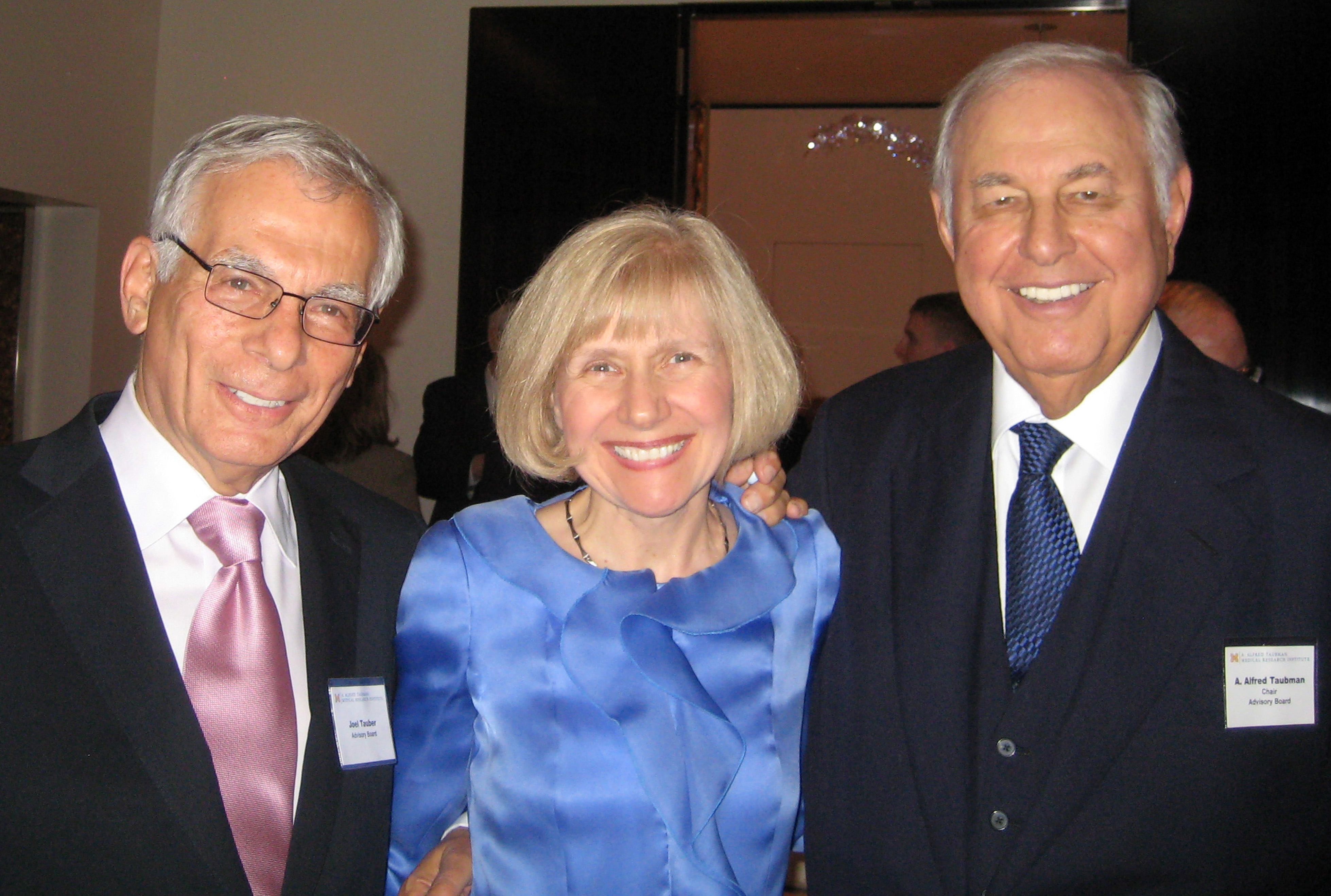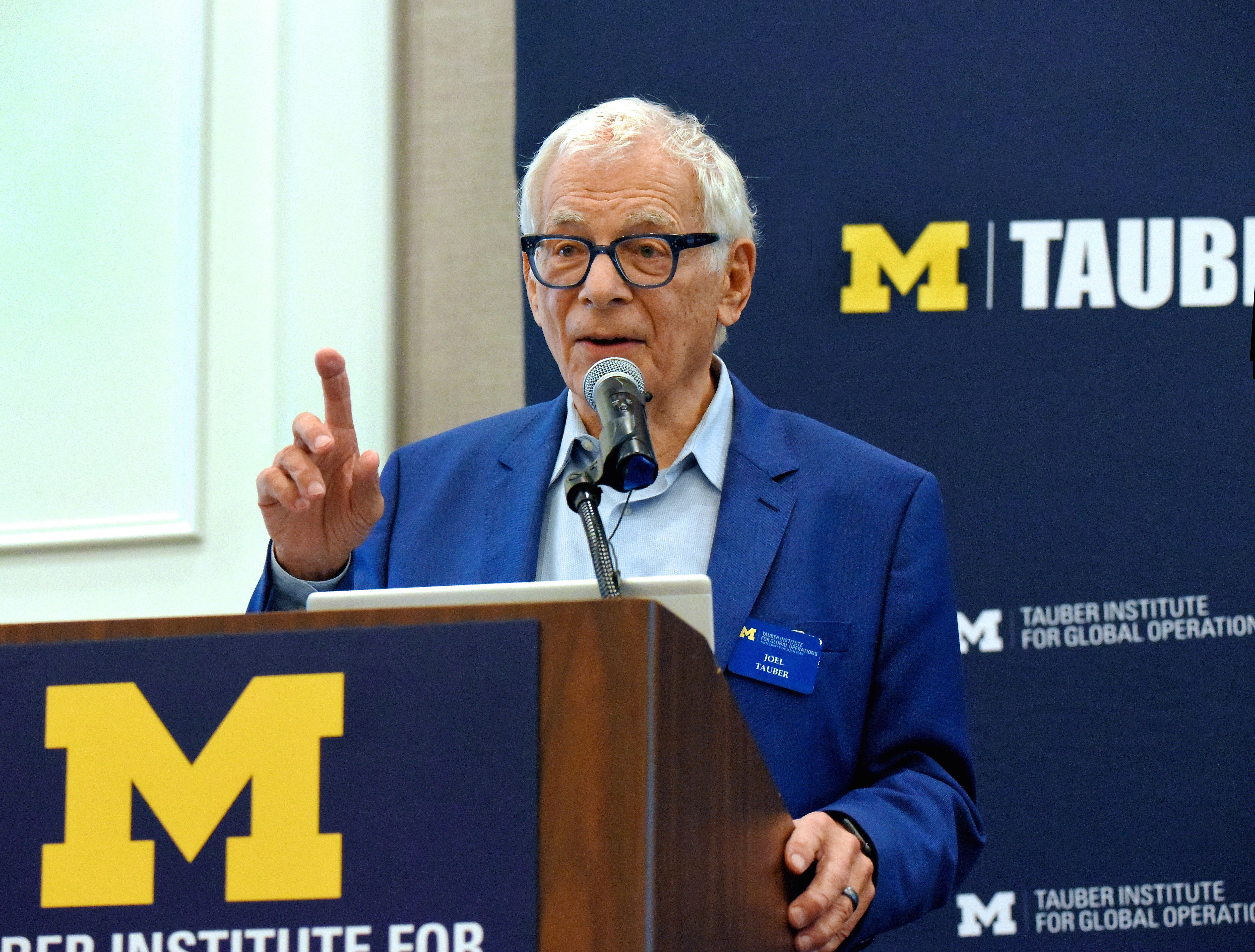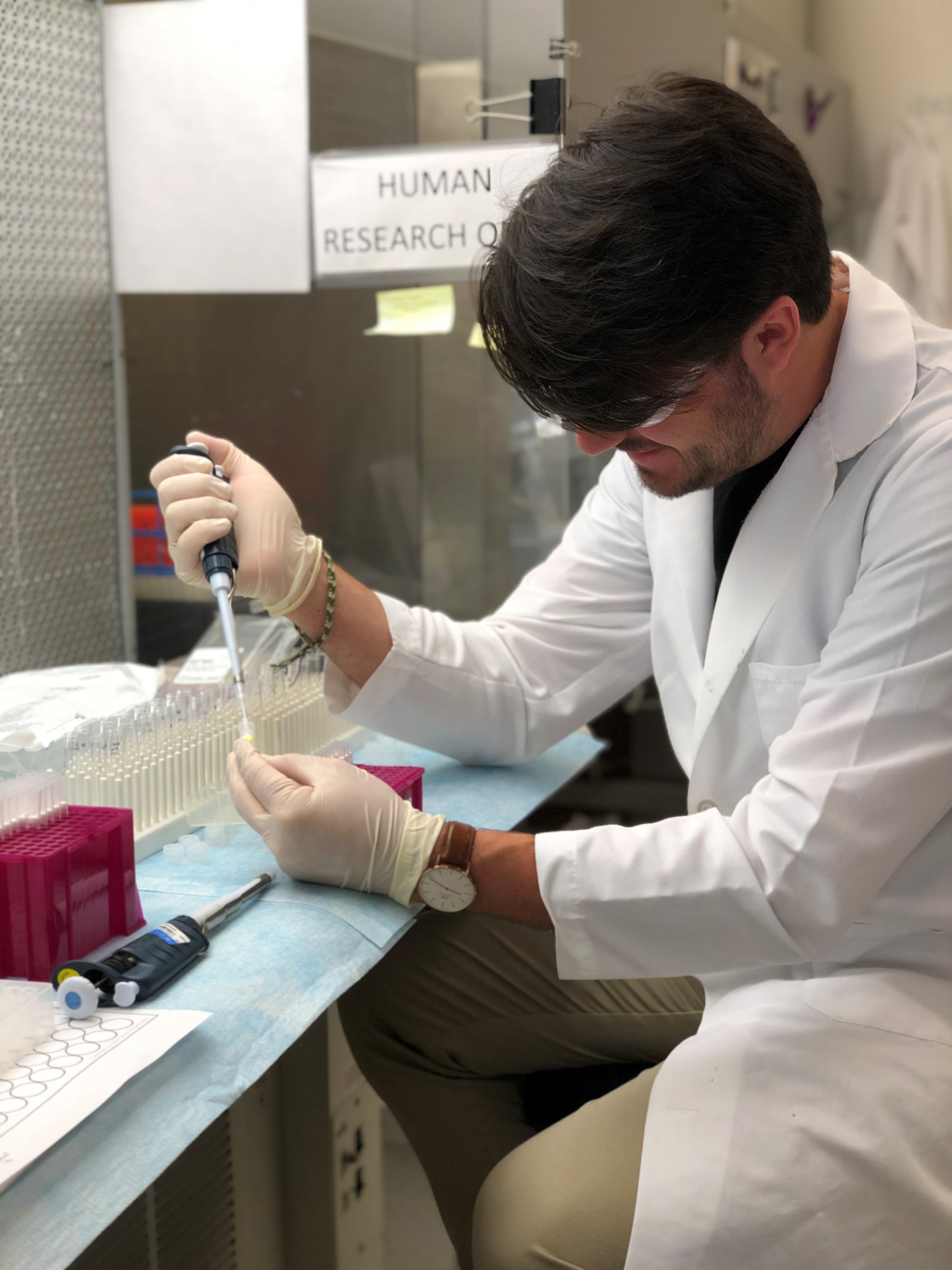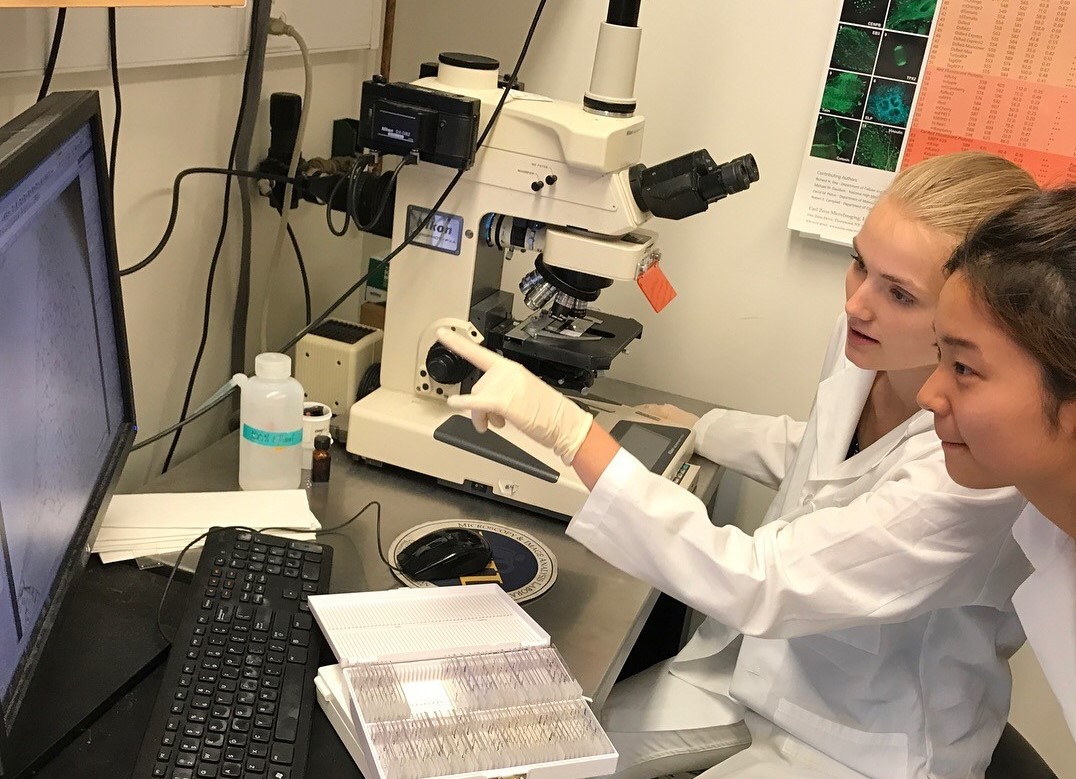Fostering a Love of Medical Science the Tauber Way
The Beginning:
Joel Tauber was introduced to the world of Dr. Eva Feldman in 2008 through a mutual dear friend, A. Alfred Taubman. Just a year earlier, Taubman had established a medical research institute in his name at the University of Michigan, with Dr. Feldman as its inaugural director.

This was Tauber’s first foray into the field of biomedicine. Up until that point, Tauber focused, as he describes it, “on the business law side of the brain.” Working with the Taubman Institute and Dr. Feldman, however, exposed him to new frontiers in medical research. He was especially intrigued by her work with stem cells, whose potential for advances in the understanding and treatment of disease was immediately apparent to Tauber.
In Dr. Feldman, he recognized a dynamic leader, who could get things done inside the lab and outside. Tauber was amazed by her skills in biomedical research and her organizational and interpersonal skills. He also remarked on how easily she meshed with Alfred Taubman, a man with a strong character and even stronger opinions.
Over the next five years, Tauber witnessed Dr. Feldman’s “dramatic impact on the advancement of science.” He began to seek an innovative way to support her work. Inspiration struck in the form of his granddaughter, who interned for a summer in Dr. Feldman’s lab, and he saw the incredible impact this experience had on her.
“The members of Eva’s team really were able to integrate my granddaughter into the lab,” remembers Tauber. “Even after she left, Eva continued to support her. I was really impressed by this example. How could I not support the opportunity for others to get this priceless experience?”
With his wife Shelley, he began to fund the Tauber Family Student Internship Program.
A Game-Changer by Nature:

Tauber has always been an agent of change, never satisfied with the status quo. As he explains, “You won’t change the work if you stay within the boundaries of known protocols. People need to think outside of the box and not be afraid to fail. You learn from those failures.”
That’s how Dr. Feldman runs her lab and how Tauber runs his businesses. While he says modestly that he has failed plenty and has scored a few successes, history shows that it was more the other way around. He built Tauber Enterprises, a $500-million powerhouse manufacturing scrap metals, plastics, fasteners, nuts, and bolts, and was the runner-up for Inc. Magazine’s Master Entrepreneur of the Year in 1991.
By staying on the cutting edge, Tauber says that he was able to change methodology and create a truly lasting impact. The Tauber Institute for Global Operations, a joint venture between the Stephen M. Ross School of Business and the College of Engineering that facilitates a cross-disciplinary education in global operations management, introduced a novel approach to the methodology for teaching business.
“An idea may be far-fetched and make no sense, but that is how real change is implemented,” which is pure Tauber wisdom.

Where Medical Research Careers Are Born:
When he turned his attention to a hands-on approach to learning about laboratory research, the Tauber Family Student Internship Program was the result. Since its inception 10 years ago, it has been the training ground for a new generation of medical scientists and physicians. By working alongside Dr. Feldman’s team of scientists in the NeuroNetwork for Emerging Therapies, these leaders of tomorrow received mentorship and experience that have prepared them for a career, if they so choose, in medical science and medicine.
“Don't be afraid to ask questions,” says Tauber to those fortunate to be chosen as Tauber Family interns. “It may sound stupid, but that's how things change. So, be fearless!
“When you're doing research, when you're looking at things, ask every question. That's what you're there for – to look at the material and the data and come up with questions. What could be? What is possible? Let your mind expand!”
And because Joel Tauber’s mind and heart are always expanding, his program has opened the doors of opportunity to 45 interns, of which 21 have gone on to medical school, and four are planning to attend. Their research was not student homework, but the real deal, leading to 40 scientific citations and 26 publications in 21 distinguished journals.
They followed Tauber’s advice and asked the questions that produced scientific discoveries.
And What Does Dr. Feldman Have to Say?

The Tauber Family Student Internship Program has been a phenomenal success. But with Joel Tauber’s name on it, how could it be anything but?” says Dr. Feldman.
“Joel understands what a blessing it would be for students to gain this kind of exposure to laboratory work early on and how it would foster a love of science, preparing those who are interested in a future career in medicine and medical research.”
But such outcomes are not only crucial for the students, as Dr. Feldman explains: “Having physicians who are interested in research is crucial to the scientific process. Often these clinician-scientists form a bridge between the bench and the bedside that lead to new therapies, which changes lives”


